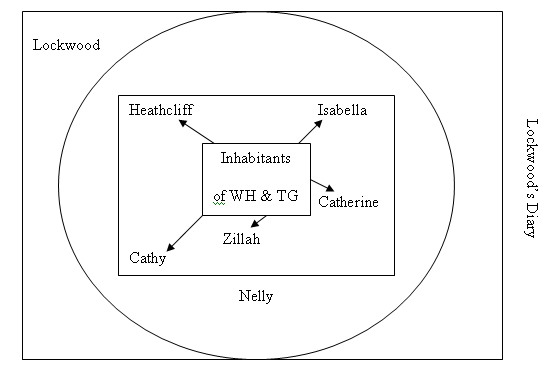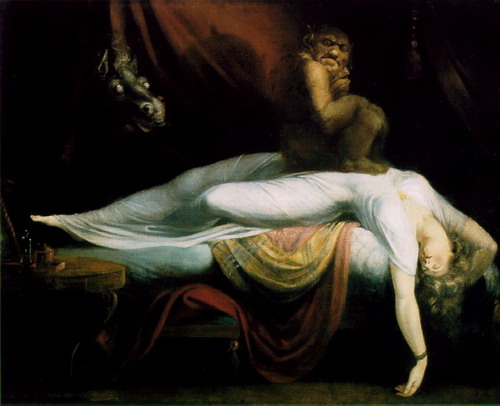"Araby", the third short story in Dubliners
Araby tells the story of a young boy in his way to aldulthood, who lives with his uncle and aunt in a house previously occupied by a priest. He is in love with the sister of one of his friends, Mangan. He never dare to speak to her, until one day she asks him if he is going to Araby, a bazaar. She cannot go because she has to attend to a retreat (a devotional meditation) at her school. The narrator promise to buy her something if he goes.
The following day he cannot think about anything else than going to Araby and buy Mangan’s sister some nice staff to impress her. But his uncle forgets about the bazaar and the day he planned to go he arrives late, possibly because he had been drinking. By the time the boy arrives to the bazaar, it is almost closed and he cannot find anything to show Mangan’s sister his love for her, feeling miserable.
The main character is also the narrator, an unnamed boy who has been believed to be the same in the first three tales. He seems to be telling the story as a recollection, because he recognizes behaviours and feelings, and uses a vocabulary in a way that teenager could not do. In fact, when he realizes something at the age he had on the tale, he remarks this, for example when his uncle returns late and drunk, and he says “I could interpret these signs”. The boy is sensitive, a good student as we can deduce from the changes in his teacher’s face when he notices the narrator being idle in class (in the third page of the story “I answered few questions in class. I watched my master’s face pass from amiablity to sterness; he hoped I was not beginning to idle.”)
He never told us his lover’s name. He talks about her as Mangan’s sister, but keeps her name as a secret. He says that her name “was like a summons to all my foolish blood”, “sprang to my lips at moments in strange prayers”, but never writes it down. In fact she is not a definite character. Her description is done by her figure, her shadow, not directly. For example, in page three, the narrator says “The light from the lamp opposite our door caught the white curve of her neck, lit up her hair that rested there and, falling, lit up the hand upon the railing”. She is an idealized figure, the important are the boy’s feelings about her, as a symbol of love as the first step to adulthood, not herself as character.
Another characters are:
-his uncle and aunt: we do not know so much about them. His aunt is a mere background figure, and just play an important part supporting his nephew when his uncle returns from, probably, a pub. His uncle seems a good person, in spite of his drinking problems. They are very permissive with the boy, letting him go out at night alone (when “People are in bed and after their first sleep now”, as his uncle says).
-his friends: that illustrate the differences between them and the narrator. Although they are his friends, in fact they are more playmates than friends. He never told any of them that he is in love. An atmosphere of loneliness surrounds him, and this intensifies his devotion to Mangan’s sister (When he has to wait for his uncle in order to go to Araby, he does not play with his friends to amuse himself while waiting, but he spends the whole evening watching her house and imagining her figure).
-the dead priest: he is not an acting character, but has a strong influence on the narrator. He seeks for solitude in the back drawing room where the priest had died, or wandering inside the empty rooms of the house. In that drawing room he has some kind of mystical experience, when in page two he cannot see her house because of the mist, and he “pressed the palms of my hands together until they trembled, murmuring “O love! O love!” many times”, like a pray.
-the people in the bazaar: they appear very little at the end of the story. They talk with English accent, about nonsense, and the reader soon will make out their superficial personalities. They makes a great contrast with the boy’s frustration and awareness of his own failure.
We could notice how characters’roles obstruct the boy’s desire. We could also identify them not as simple characters, but as symbols of real forces determining events, like economy or social structure. Everything in the story lead to the final failure of the protagonist’s quest. Its structure is very similar to a quest: the boy is the knight who has to go to an exotic place, Araby (it reminds us of Arabia) and win the prize for his beloved maiden, Mangan’s sister. In page two he had advanced this idea, when he is doing the shopping on Saturdays evenings, surrounded by drunked men and bargaining women, and he imagine himself boring “my chalice safely through a throng of foes”. In addition, his idealized love for Mangan’s sister gives the tale a romantic character.
This romantic point of view collides with reality. The boy dreams about going to Araby and impress Mangan’s sister, but there are greater forces than his desire. Firstly, his duties as student: he can not spend all the time he would thinking about her. The waiting is almost insufferable. Secondly, his uncle, who forgets about it and came home late, drunk, and did not give him enough money to buy something nice. Luck is not at his side. And when he finally gets to Araby, what he founds is heartbreaking.
It is very late and the bazaar is almost closed, in darkness. Only few stalls are still open, and he approaches one of them. But instead of exotic or magical staff, as the name Araby suggests, he finds flowered tea-cups and people talking nonsense in English accents. He could not have found anything less exotic. Then, lights went out and he find himself really in darkness, at the same time his hopes went out. In the two final lines “Gazing up into darkness I saw myself as a creature driven and derided by vanity; and my eyes burn with anguish and anger” he is realizing his real self, not the romantic idea he had about himself. He discovers himself not as a hero carrying a chalice of love in a depraved world, beacuse he is part of the same that he despises. Romantic ideas, dreams, hopes and love, have no place in Dublin. He realizes it, and he is helpless, really miserable, really angry, beacuse there is nothing he could do to avoid it.

